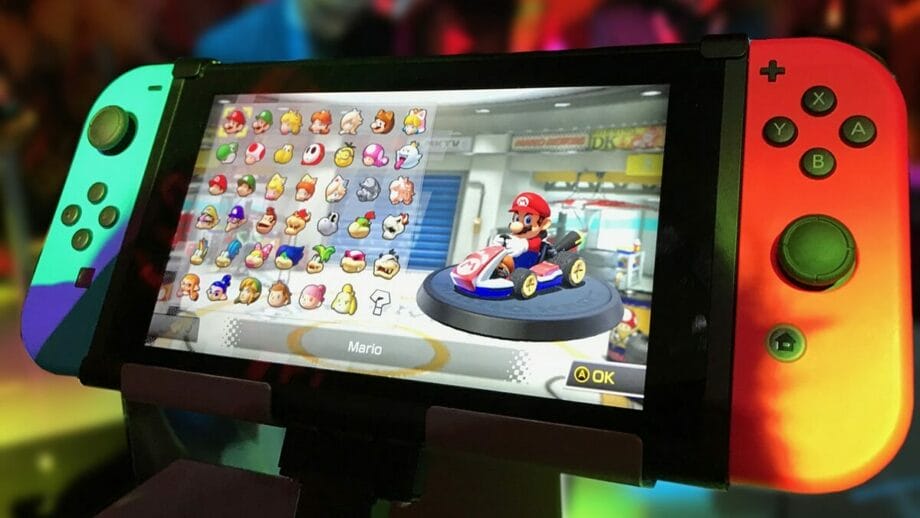Mobile gaming is at an all-time high. With a whopping 2.2 billion people worldwide engaging in this increasingly popular pastime – five times the population of North America! In their pursuit to reach new heights and dominate leaderboards, enthusiastic gamers around the globe have created a growing mobile gaming community unlike any other.
Mobile gaming has successfully captured the hearts of gamers all over. It boasts an impressive 59% total worldwide revenue – surpassing both the console and PC game industries in recent years. This trend is expected to continue at full speed ahead for the foreseeable future. It is cementing mobile as King when it comes to video games!
Games such as Pokémon Go and Candy Crush have become iconic in the gaming world due to their unparalleled success. But what could be behind this widespread phenomenon? It turns out that many of the most successful titles that you will find on the mobile game ranking chart use a variety of techniques geared toward addiction. It ultimately leads players around the world on an unforgettable journey!
Mobile gaming has become increasingly popular in recent years, though research indicates there are potential risks associated with the activity. In fact, a study recently revealed that it can be linked to feelings of social anxiety, depression, and loneliness. These are the warning signs we should not ignore. It is essential for people to further understand these implications before engaging in mobile video game usage so they may make informed decisions on how much time to spend playing them.
Investigating the digital world, let’s explore why mobile games captivate and engage individuals for long periods of time. Unveil the mysteries behind their success!
Mobile Game Addiction and The Brain

Addiction can be a difficult concept to define. However, medical professionals have come together in recognizing it as an obsessive and often irrational desire for something that poses serious harm. Generally speaking, addiction is persistently engaging with the thing you know could cause long-term detriment – whether mentally or physically.
Mobile games have become a force to be reckoned with. Their influence on addiction can in part be attributed to dopamine – the neurochemical responsible for increased learning ability and exploration. Many of these mobile titles are expertly crafted so as to stimulate this system. It leads users into an engaging cycle of reward-seeking behavior.
Studies published in the renowned Nature magazine have discovered that playing video games can induce a dopamine release comparable to stimulant drugs like amphetamine and methylphenidate. This neurotransmitter is associated with desirable sensations. This lends credence to the idea that gaming activities are capable of providing rewards similar to those of illicit substances.
Mobile game developers often tap into the addictive power of pleasure hormones, creating gameplay experiences that are difficult – if not impossible! – to put down. With a focus on specific brain pathways and elements like tailored rewards and visuals, many mobile games keep users hooked with their relentless pursuit for progress or victory.
Recommended for you: Love Playing Video Games? Learn How you can Make Money from it.
Escalating Difficulty and Instant Gratification

Beginning a new gaming app is often no challenge for avid players. Easy levels provide an opportunity to get into the groove with the quick rewards of the pleasure hormone dopamine. As you breeze through these initial stages, your satisfaction only increases and furthers enjoyment as more difficult challenges arise. This gives the player a sense of great accomplishment, making them want to carry on playing to achieve the same feeling.
By rewarding users with positive reinforcement for completing levels, Candy Crush Saga capitalizes on the power of encouragement. Players are consistently congratulated and praised as they progress through this top-ranked gaming sensation. Words like “Delicious” and “Devine!” inspire them to keep achieving their goals. A small gesture that makes a big difference in accessibility, motivation, and playability. This is proving once again how games can fuel our passions beyond the screen (and light up those leaderboards!).
As gamers become more adept at a game, they’ll face increasingly challenging levels. This is beneficial in some regards. It boosts the ego and stimulates dopamine receptors – creating an environment that can lead to addiction if players aren’t careful! However, the sense of pride for mastering each level provides great satisfaction too – making increasing challenges worth pursuing.
Bright Colors and Hypnotic Sounds

Mobile games leverage visually vibrant colors and melodious sounds that establish an entertaining cycle of reward. This, ultimately, stimulates dopamine production in the brain for a heightened gaming experience.
Walking into any Las Vegas casino, you’re met with a dizzying array of flashing neon lights. Mobile game developers have caught onto this phenomenon. They use their intuition to capture our attention through stimulating colors and hypnotic sounds. They are tapping in on the primal senses we are innately wired towards responding to.
According to Dr. Lisa Strohman, the founder of Digital Citizen Academy and renowned clinical psychologist, we should consider nature’s warning coloration when it comes to digital media – much like a black widow spider that features bright red coloring on its underbelly as an indication of danger. This “brightness” can be alluring but also harmful in certain ways.
From popping sounds to dynamic visuals, mobile games captivate audiences with their stimulating senses and constantly changing environments – making it difficult for anyone to look away.
Appointment Mechanics

Mobile game developers often employ the clever approach of creating “appointment mechanics” to hook players and foster a routine for returning. By setting up specific times that are beneficial or advantageous in-game, gamers return regularly out of anticipation – letting them enjoy an engaging gaming experience!
For example, Clash of Clans is one of the bestselling mobile games, currently ranked ninth on the App Store. To encourage users to continue playing and remain engaged, they are periodically prompted with push notifications that remind them to return in order to take part in tasks such as collecting resources or starting a battle against other players. If these challenges are completed successfully then rewards await!
Mobile gaming has come up with another unique way to keep players engaged: daily rewards for consistent login streaks. Players are incentivized to continue returning each day. Because, if they miss out on the streak, it resets back to zero and must be rebuilt.
To promote a healthier lifestyle and support people’s well-being, apps like Headspace and Calm have also adopted the same tactics to encourage the formation of good habits. Looking beyond simply providing an outlet for relaxation, these meditation apps guide users on their journey toward developing beneficial daily practices.
2048 is another great example of a mobile game that successfully engages players with its simple yet addictive gameplay. The objective of 2048 is to combine tiles with matching numbers on a grid, with each combination creating a new tile that doubles in value, starting from 2 and progressing towards the ultimate goal of creating a 2048 tile. This straightforward yet challenging task keeps players returning, as they strategize and maneuver tiles to achieve higher scores and reach that coveted 2048 tile.
You may like: Top 20 New and Exciting Games for You to Play in 2021.
Gambling with Your Luck

Skill alone won’t guarantee victory. Luck is often the deciding factor that separates failure and success. This element of chance entices players to revisit their favorite games, proving why randomness can be just as captivating as mastery!
Luck has always been a major factor in gaming, and it’s no different with hits like Candy Crush or Angry Birds. Players may feel they have control over the outcome of their game but really winning is determined by how the game was programmed – just like pulling that lever on a slot machine!
Steve Sharman, a Ph.D. student in psychology at the University of Cambridge, observes that an illusion of control can lead to gambling addiction – something exploited by casinos for their own financial gain. His research delves into why gamers feel so compelled to continue even if they know it’s detrimental to them; seeking insight as well as solutions from his studies on this concerning topic.
“Gamblers often fall victim to the illusion of control, falsely believing they have a certain degree of influence on game outcomes. In actuality, while interactive features may give players an edge in some cases, these scenarios are few and far between – leaving gamblers at risk for addiction due to their false sense of mastery over chance-based events” he says.
The Psychology of Freemium

Last but not least, the mobile gaming industry is heavily shaped by the freemium business model. According to Statista, 54% of app developers offer their games for free which gives an unprecedented level of accessibility. This provides anyone with a smartphone and internet connection access to countless hours’ worth of entertainment. Thus it’s no surprise that this strategy has taken hold in such great prevalence!
Mobile gaming is notoriously alluring. It’s no surprise that as soon as players are exposed to a game they quickly become engaged. The creators of these games understand the draw and use psychological techniques to ensure their users remain hooked. They also encourage them to make microtransactions along the way – creating an addictive experience with huge potential rewards.
In an effort to maximize revenue, app developers strategically create obstacles and inconveniences in their games that make players uncomfortable. Then they offer the perfect solution: tools or upgrades meant to bypass the difficulty and provide relief – at a price! This clever ploy has generated billions of dollars for mobile game creators over recent years; proving that addiction can be worth quite literally its weight in gold.
Mobile games feature a variety of ways to keep players coming back for more. For instance, game developers have implemented daily log-in streaks. They also implemented the ability to purchase in-app power-ups as rewards that can be unlocked with real money. These features provide users with an engaging experience while also increasing their chances at progress through levels and achieving wins – delivering that feel-good hit dopamine!
You may also like: Successful Game Development: How to Succeed in the Gaming Industry.
Swiping for Dopamine

Mobile gaming seems to be only growing in popularity. At the same time, people are spending more and more hours with their smartphones, starting to do so at younger and younger ages. While it’s certainly understandable that amid so much competition, app developers would want to use every tactic they can to maximize product stickiness, finding ways to do so that don’t exploit people is the challenge of the day.
Note: This article was first published on October 26, 2021. We last updated this article on February 13, 2023 with fresh information.





